IRP Seminars will be in person meetings this semester, unless otherwise noted. Connection information for virtual seminars will be sent out, in advance, to the IRP Seminar email list.
January 25, 2024
 Designing Policies to Enable Equitable and Beneficial Electrification in the U.S.
Designing Policies to Enable Equitable and Beneficial Electrification in the U.S.
Morgan Edwards, Assistant Professor, La Follette School of Public Affairs, University of Wisconsin–Madison
12:15–1:30pm, 8417 William H. Sewell Social Sciences Building
One billion machines in U.S. households—from cars to furnaces to stoves—currently run on fossil fuels. These machines will need to be replaced with electrified alternatives to achieve net zero greenhouse gas emissions. However, one in three U.S. households reports difficulty paying their energy bills, and low-income households may be less likely to adopt new technologies. This talk combines large property datasets and detailed engineering models to quantify emerging inequities in electrification transitions. New policies such as the Inflation Reduction Act provide opportunities to address these inequities but may exacerbate them without careful implementation.
February 1, 2024
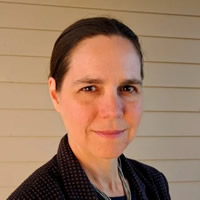 Does Old-Age Social Security Help Children? The Impact of Social Security on Child Well-Being
Does Old-Age Social Security Help Children? The Impact of Social Security on Child Well-Being
Tara Watson, Professor, Department of Economics, Williams College
12:15–1:30pm, 8417 William H. Sewell Social Sciences Building
Though Social Security is typically considered a program to support retirees, nearly one in ten children live in a home with Social Security income. Children are now substantially more likely to live with an older adult than they were 20 years ago, and now twice as likely to be in a household reporting Social Security income than traditional cash welfare. This talk will address the role Social Security plays in economic outcomes among children living with older adults.
Thursday, February 8, 2024
 Net Worth Poverty and Child and Adult Well-Being
Net Worth Poverty and Child and Adult Well-Being
Christina Gibson-Davis, Professor, Sanford School of Public Policy, Duke University
12:15–1:30pm, 8417 William H. Sewell Social Sciences Building
In the United States, discussions of economic hardship often center on the negative consequences of inadequate income. Wealth deprivation—or the absence of a sufficient store of resources—may also be a risk factor for poor outcomes for both children and adults. Net worth poverty, which refers to households whose wealth is less than one-fourth of the federal poverty line, has been rising even as income poverty has been falling. This presentation analyzes how net worth poverty both complements and exacerbates the negative repercussions of poverty related to income, and the ways in which net worth poverty is negatively associated with a variety of child and adult outcomes, including children’s test scores, adult mental health, and household levels of food insecurity.
Thursday, February 15, 2024
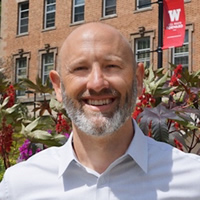 Ethnoracial Submarkets of Insecure and Unsafe Housing: What Can Eviction and Housing Code Violations Teach Us About Housing Regulation in Madison, Wisconsin?
Ethnoracial Submarkets of Insecure and Unsafe Housing: What Can Eviction and Housing Code Violations Teach Us About Housing Regulation in Madison, Wisconsin?
Revel Sims, Assistant Professor, Department of Planning and Landscape Architecture, University of Wisconsin–Madison
12:15–1:30pm, 8417 William H. Sewell Social Sciences Building
Recent scholarship on eviction has raised important questions about what causes housing insecurity by shifting the analysis beyond tenant vulnerability and toward the critical role that key actors and market forces play in producing insecurity. In this seminar, Sims will present preliminary findings from an investigation on the distribution of insecurity and quality in the Madison, Wisconsin, housing market. Using a novel parcel-level dataset of eviction filings and housing code violation orders between 2010 and 2017, Sims finds that filings and violations are highly clustered and somewhat coincidental events that are explained primarily by the combination of building-specific features and neighborhood characteristics, particularly Black ethnoracial segregation. Based on these findings, Sims explores what the existence of ethnoracial housing submarkets might mean for efforts to reduce insecurity and improve quality.
Thursday, February 22, 2024
 Automating Addiction Treatment
Automating Addiction Treatment
David Gustafson, Director, Center for Health Enhancement Systems Studies, University of Wisconsin–Madison
12:15–1:30pm, 8417 William H. Sewell Social Sciences Building
Addiction is a growing crisis. Addiction counselors are leaving the field faster than they can be replaced, and a dramatic change is needed to address the emergency. This presentation will assess the current landscape of addiction treatment and present a technology-based approach that is being developed by a team of faculty, staff, and community leaders to address the increasingly dire situation.
Thursday, February 29, 2024
 Resilience to Adversity: When and How Black Voters Engage in Costly Political Behaviors
Resilience to Adversity: When and How Black Voters Engage in Costly Political Behaviors
Christine Slaughter, Assistant Professor, Department of Political Science, Boston University
12:15–1:30pm, 8417 William H. Sewell Social Sciences Building
What is the influence of racial resilience in American politics? This presentation proposes that lower-resource voters from historically marginalized groups are motivated by the shared understanding of the groups’ response to adversity in their political decision-making. Three survey experiments demonstrate how racial resilience is associated with a willingness for African Americans to engage in high-cost political behaviors, including attending a protest demonstration, waiting in line to vote, donating to Black-led organizations, and proposing solutions to reduce Black-white economic disparities. Research shows that Black Americans higher in racial resilience are both acutely aware of and motivated to overcome racial barriers imposed to minimize their political engagement. These findings contribute to a growing literature on how persistent racial inequality shapes African Americans’ political decision-making.
Thursday, March 7, 2024
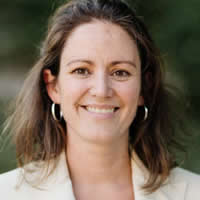 The Michigan Contraceptive Access Research and Evaluation Study: Evidence from the First Two Years
The Michigan Contraceptive Access Research and Evaluation Study: Evidence from the First Two Years
Martha Bailey, Professor, Department of Economics, University of California, Los Angeles
12:15–1:30pm, 8417 William H. Sewell Social Sciences Building
Co-Sponsor: Center for Demography and Ecology
The Michigan Contraceptive Access Research and Evaluation Study (M-CARES) examines how out-of-pocket costs affect the choice of contraceptive method among uninsured individuals in the United States. Using a randomized control trial, this presentation examines how subsidies for contraception affect the choice of contraception. The results of the trial are used to project the implications of a national policy making contraception free for all uninsured individuals nationally.
Wednesday, March 13, 2024
Race & Ethnicity Workshop, Havens-Wright Center for Social Justice
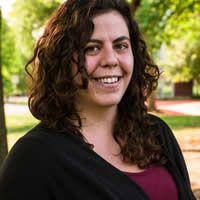
Racial Inequality in Access to the Safety Net: County Level Racial and Ethnic Composition and Nonprofit Human Services Expenditures
Shoshana Shapiro, National Poverty Fellow, Institute for Research on Poverty, University of Wisconsin–Madison, Administration for Children and Families
10:30 AM–12:00 PM, 8108 William H. Sewell Social Sciences Building
Co-Sponsor: Havens-Wright Center for Social Justice
This paper is a national macrospatial analysis of how the spatial provision of nonprofit human services serves Black, Hispanic, and Latino Americans. I use national administrative data from the National Center for Charitable Statistics on nonprofit expenditures to analyze racial and ethnic disparities in nonprofit human services expenditures at the county level in the United States. The findings suggest that the county percentage population of Black and Hispanic or Latino residents is negatively associated with nonprofit human services expenditures net of other predictors. Black, Hispanic, and Latino residents of the Southeast region, including Texas, and rural counties experience among the largest disparities in nonprofit human services provision in the country.
Wednesday, March 13, 2024
IRP Lunch & Learn Seminar
12:30–1:45 pm, 3470 William H. Sewell Social Sciences Building

“There’s no Creative District Without Creatives”: Black Stakeholder Roles and Agency in Wilmington’s Creative District
Dianna Ruberto, National Poverty Fellow, Institute for Research on Poverty, University of Wisconsin–Madison, Office for the Assistant Secretary for Planning and Evaluation (ASPE)
12:30–1:45 pm, 3470 William H. Sewell Social Sciences Building
Creative placemaking is commonly employed as a strategy to rebrand and economically revitalize declining neighborhoods, often targeting the neighborhoods of race- and class-subjugated communities. Creative placemaking scholarship has not adequately explored the racial dynamics of these initiatives in a manner that centers Black voices. This presentation will examine the Creative District in Wilmington, Delaware, to illuminate the roles and capacities in which Black stakeholders participate in Wilmington’s Creative District (WCD), and how Black stakeholders demonstrate agency as participants in these processes. Despite some limitations, Black stakeholders collectively demonstrated agency by using their roles to advocate for and foster inclusive spaces and networks for Black artists and residents. Findings demonstrate that creative placemaking initiatives cannot understand how to improve racially equitable and inclusive practices without considering the roles and experiences of Black citizens within these districts.
Thursday, March 14, 2024
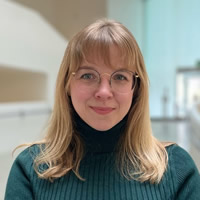 States of Caring: Associations between State Social Safety Nets and Child Well-Being in the United States
States of Caring: Associations between State Social Safety Nets and Child Well-Being in the United States
KaLeigh White, National Poverty Fellow, Institute for Research on Poverty, University of Wisconsin–Madison, Office of Planning, Research, and Evaluation (OPRE)
12:15–1:30pm, 8417 William H. Sewell Social Sciences Building
U.S. social welfare programs support children and families through income support and in-kind assistance, as well as the direct provision or subsidization of goods and services. These programs support child well-being through resources to help foster child development and mitigate the impacts of adverse events. Yet, due to the decentralized designs of many social welfare programs, states organize support differently. This talk will present findings from a paper examining differences in state-level programs and their association with child well-being as measured by child food and housing insecurity. Results offer insights into the types of programs most associated with reductions in economic insecurity for children and illustrate the importance of assessing mechanisms of support.
Thursday, March 14, 2024
Household Finance Seminar, Department of Consumer Science
 Acquisitions of Free Food Across the Supplemental Nutrition Assistance Program Benefit Cycle
Acquisitions of Free Food Across the Supplemental Nutrition Assistance Program Benefit Cycle
Sarah Charnes, National Poverty Fellow, Institute for Research on Poverty, University of Wisconsin-Madison, Office of Planning, Research, and Evaluation (OPRE)
3:45–4:45 pm, Nancy Nicholas Hall, Room 1199 (Wisconsin Ideas Room), 1300 Linden Drive
Co-Sponsor: Department of Consumer Science
National Poverty Fellow Sarah Charnes will discuss current work related to households receiving food assistance. Primarily, this talk will focus on patterns of free food acquisitions (e.g., food obtained from food pantries, family and friends, or school or work) among households receiving Supplemental Nutrition Assistance Program (SNAP) benefits over the course of the monthly benefit cycle, using the U.S. Department of Agriculture’s National Household Food Acquisition and Purchase Survey (FoodAPS). Prior research has documented the existence of a cyclical pattern in food expenditures, caloric consumption, and/or diet quality across the SNAP benefit month, peaking with receipt of SNAP at the start of the month and dwindling as the month unfolds. However, results of this study demonstrate that free food acquisitions by SNAP households are relatively constant across the monthly benefit cycle, which may suggest benefit inadequacy throughout the course of the SNAP month.
Thursday, March 21, 2024
 Strike from the Record: Marijuana Laws and Administrative Burden in Criminal Record Clearance
Strike from the Record: Marijuana Laws and Administrative Burden in Criminal Record Clearance
Nyron Crawford, Associate Professor, Department of Political Science, Temple University
12:15–1:30pm, 8417 William H. Sewell Social Sciences Building
In the United States, one in three people has a criminal record. This carceral contact leads many to suffer collateral consequences of an arrest or conviction beyond the sanctions imposed by the state. Yet take-up of record clearance programs like expungement—a legal process through which a person with a state criminal record can petition to have that record destroyed or limited to the public for access—is low. Using the recent trend of states legalizing cannabis as an example, this presentation examines the role of administrative burden and policy feedback in the practice of clearing criminal records, especially of those affected by prior cannabis convictions.
Thursday, March 28, 2024
Spring Break – No Seminar
Thursday, April 4, 2024
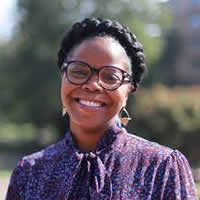 Drivers of Involvement and Well-Being among Fathers of Children in Kinship Care
Drivers of Involvement and Well-Being among Fathers of Children in Kinship Care
Qiana Cryer-Coupet, Associate Professor, Social Work, Georgia State University
12:15–1:30pm, 8417 William H. Sewell Social Sciences Building
About 2.6 million children in the United States live in kinship care yet little is known about the health and well-being of their fathers. Research on kinship care families has historically focused on the outcomes of children in care, and the well-being of caregivers and biological mothers. Like other groups of nonresident fathers, fathers of children in kinship care may experience familial and external factors serving as supports or barriers to their involvement in the family system. Barriers may include access to labor markets, housing instability, experiences with the child support system, family-level gatekeeping, and impacts of criminal legal system involvement. Supportive father-caregiver relationships, positive father-child relationships, and formal social supports tend to enhance paternal efficacy. This talk will highlight findings related to these barriers and supports in addition to directions for future research.
Thursday, April 11, 2024
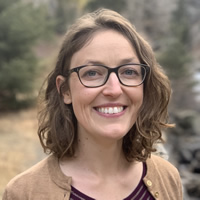 The Effect of Means-Tested Transfers on Work: Evidence from Quasi-Randomly Assigned SNAP Caseworkers
The Effect of Means-Tested Transfers on Work: Evidence from Quasi-Randomly Assigned SNAP Caseworkers
Chloe East, Associate Professor, Department of Economics, University of Colorado, Denver
12:15–1:30pm, 8417 William H. Sewell Social Sciences Building
There is an ongoing debate over whether and how safety net programs in the United States may affect labor force participation among recipients. The Supplemental Nutrition Assistance Program (SNAP) serves 41 million recipients monthly and is the only universal means-tested transfer program. This research studies how SNAP applicants change their labor force participation after applying for SNAP, depending on whether they eventually receive SNAP. It also examines the influence of SNAP caseworker behavior on the likelihood that eligible applicants receive benefits and what measures can be taken to increase take-up of SNAP.
Thursday, April 18, 2024
PAA CONFERENCE – No Seminar
Thursday, April 25, 2024
 SeniorCare: Innovative Medicaid Drug Coverage to Improve Older Adult Health and Financial Well-Being
SeniorCare: Innovative Medicaid Drug Coverage to Improve Older Adult Health and Financial Well-Being
Kevin Look, Associate Professor, School of Pharmacy, University of Wisconsin–Madison
12:15–1:30pm, 8417 William H. Sewell Social Sciences Building
The Wisconsin Department of Health Services (DHS) SeniorCare program helps older adults not currently receiving full Medicaid benefits pay for prescription drugs and vaccines. The program’s goals are to delay or prevent the use of more expensive health services and future enrollment into Medicaid. IRP’s Medicaid Evaluation Research and Technical Assistance (MERTA) program examines the impact of SeniorCare participation on member financial hardship, quality of medication use, and likelihood of Medicaid entry. By leveraging a unique combination of data from the federal Medicare program, state Medicaid program, and U.S. Census Bureau, this research comprehensively assesses the impact of the SeniorCare program on the health and financial well-being of low-income older adults.
Recording of this seminar is available on the IRP YouTube Channel
Thursday, May 2, 2024
 Holding It Together: How Women Became America’s Safety Net
Holding It Together: How Women Became America’s Safety Net
Jessica Calarco, Associate Professor, Department of Sociology, University of Wisconsin–Madison
12:15–1:30pm, 8417 William H. Sewell Social Sciences Building
Holding It Together, the new book by Sociologist Jessica Calarco, reveals how the United States exploits women’s unpaid and underpaid labor to maintain the illusion of a “DIY society” and justify underinvestment in the social safety net. Through vivid portraits drawn from over 400 hours of interviews with families across the socioeconomic, racial, and political spectrum, along with original surveys of more than 4,000 U.S. parents, the book shows that without women, the U.S. social safety net would simply collapse. The book also illustrates how the United States traps women in this system of exploitation—leaving them either with no choice but to do the work of the social safety net or with the morally fraught choice of pushing that work onto others more vulnerable than them. Finally, and with insights from media and policy analyses, the book explores the myths that dissuade us from fighting together to build the kind of net that would better support us all.
Recording of this seminar is available on the IRP YouTube Channel